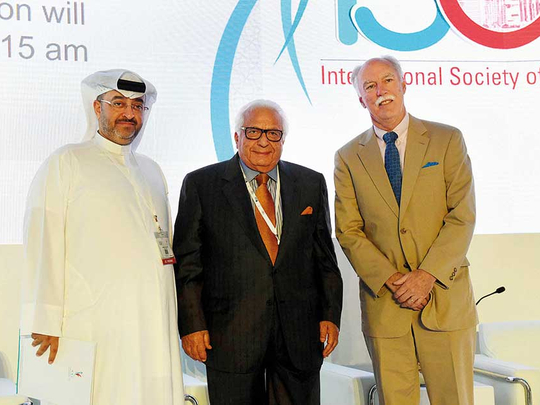
Abu Dhabi: Within the next six months, the UAE’s first rehabilitation facility, the National Rehabilitation Centre (NRC), will launch a dedicated unit for the treatment of adolescent addicts aged 14 years and upwards, it was announced in the capital on Thursday.
The aim is to reduce the number of individuals suffering from substance abuse, especially as the vast majority of addicts are known to start between 12 and 25 years of age.
“At present, we offer outreach for juvenile offenders through the justice system, and also conduct prevention programmes through schools. But the new unit will allow young addicts to seek treatment voluntarily, even before their addictions become serious or [cause them to get into trouble with the law],” Dr Ahmad Yousuf, head of psychiatry at the NRC, told Gulf News.
“The hope is that rehabilitation programmes for youth will also reduce the number of young adults suffering from substance abuse disorders. After all, 47 per cent of our patients at the NRC are aged between 22 and 29 years, followed by 26.5 per cent of patients aged 30 to 39 years,” he added.
Dr Yousuf was speaking on the sidelines of the 19th annual conference of the International Society of Addiction Medicine, which kicked off in Abu Dhabi on Thursday. More than 500 experts in addiction medicine, including psychiatrists, researchers and nurses from 40 countries, are attending the four-day conference, which focuses on developments in the treatment, diagnosis and prevention of substance abuse.
The NRC, which is organising the conference, is the first rehab centre in the UAE, and currently operates from a custom-built facility in Shakhbout City with 169 patient beds. Since 2002, it has provided treatment to 3,100 Emirati patients, including 60 women.
Since January this year, the facility also accepts expatriates for treatment, who must pay Dh120,000 for a four-week voluntary inpatient programme, or Dh230,000 for a six-week inpatient programme that is mandated for addicts by judicial order. This is then followed by a 16-week outpatient programme that costs Dh70,000.
Experts at the conference reported that marijuana or cannabis is the most widely abused drug in the Middle East. But the region also has the highest annual prevalence of opioid use, with about three per cent of those aged 15 to 64 years misusing the drugs. Lately, the abuse of prescription pills, like opiates and anti-epileptic medication, has also grown dramatically.
Dr Hamad Al Gaffari, director-general of the NRC, reiterated his call to view addiction not as a crime but as an illness that leads to changes in brain functioning.
“We must understand that nearly 95 per cent of addicts start the misuse of substances between 12 and 25 years, an age during which the brain is not fully developed and therefore prone to addiction-related changes. In addition, substance abuse has a genetic component because we know that an individual who has a family member with substance abuse problems has a 50 per cent higher risk of developing it too,” said Dr Thomas McLellan, chairman at US-based think tank Treatment Research Institute. Dr McLellan is also senior scientific editor of the respected substance misuse report, ‘Facing Addiction in America: The Surgeon General’s Report on Alcohol, Drugs and Health’.
“Punishment has little to no effect towards reducing addiction. Instead, addicts need to be treated as chronically ill patients who need long-term care and monitoring, as you would offer to a diabetic,” he advised.
Abu Dhabi considering drug courts
In a bid to better treat addicts who get on the wrong side of the law, Abu Dhabi is considering the introduction of special courts to deal with drug cases.
The issue will be explored in a dedicated session on Sunday (October 29) at the 19th annual conference of the International Society of Addiction Medicine.
Hamad Al Gaffari, director-general OF the UAE’s first rehab facility, the National Rehabilitation Centre, earlier said that specialised experts with full knowledge of the treatment process would be involved in trials conducted at drug courts. In this manner, the defendant’s or patient’s rehabilitation will also be monitored, and relapses can be prevented.
“The aftercare of addicts is still a challenge, and such courts would be a step in the right direction,” Al Gaffari said in the capital on Thursday.
The UAE has already taken steps to reduce the sentence for those caught using illegal drugs. In October 2016, a presidential decree downgraded the use of illicit substances to a misdemeanour with a two-year minimum jail sentence, down from the four-year minimum sentence instituted in the previous 1995 law. Judges can also now refer first-time offenders to rehabilitation, can impose a Dh10,000 maximum fine, or sentence them to community service.












